Start 14-Day Trial Subscription
*No credit card required

10 Influential US Craft Beers
When discussing the history of craft beer, it quickly becomes an existential question if one tries to identify when and where it all began. Like pinpointing the beginning of the universe, there are endless theories on where it all started and who led the way. Since beer is akin to alchemy and evolved with a blend of science, technology and artistry, it becomes clearer to express the evolutionary points in history with the beers that changed brewing history. Below is a list of some of the most influential and important craft beers in no particular order.
Heady Topper
The Alchemist
“Drink Fresh, Drink Cold, Drink from the Can.” These are the easy-to-follow instructions printed on every can of The Alchemist’s Heady Topper DIPA. For anyone who managed to pull out a one-week-old can to share with friends, the room would fill immediately with the resinous dry-hopped aromas the moment the tab was pulled. Just like the communal passing of the Humulus Lupulus’s dried smoke cousin Cannabis Sativa, it was not uncommon for Heady to be passed amongst the group and shared directly from the can. For beer lovers around the world, this OG NEIPA that was once only available on draft in rural Vermont has redefined every American craft brewery and invented the single-most powerful marketing term in beer by its sheer existence: “Hazy.”
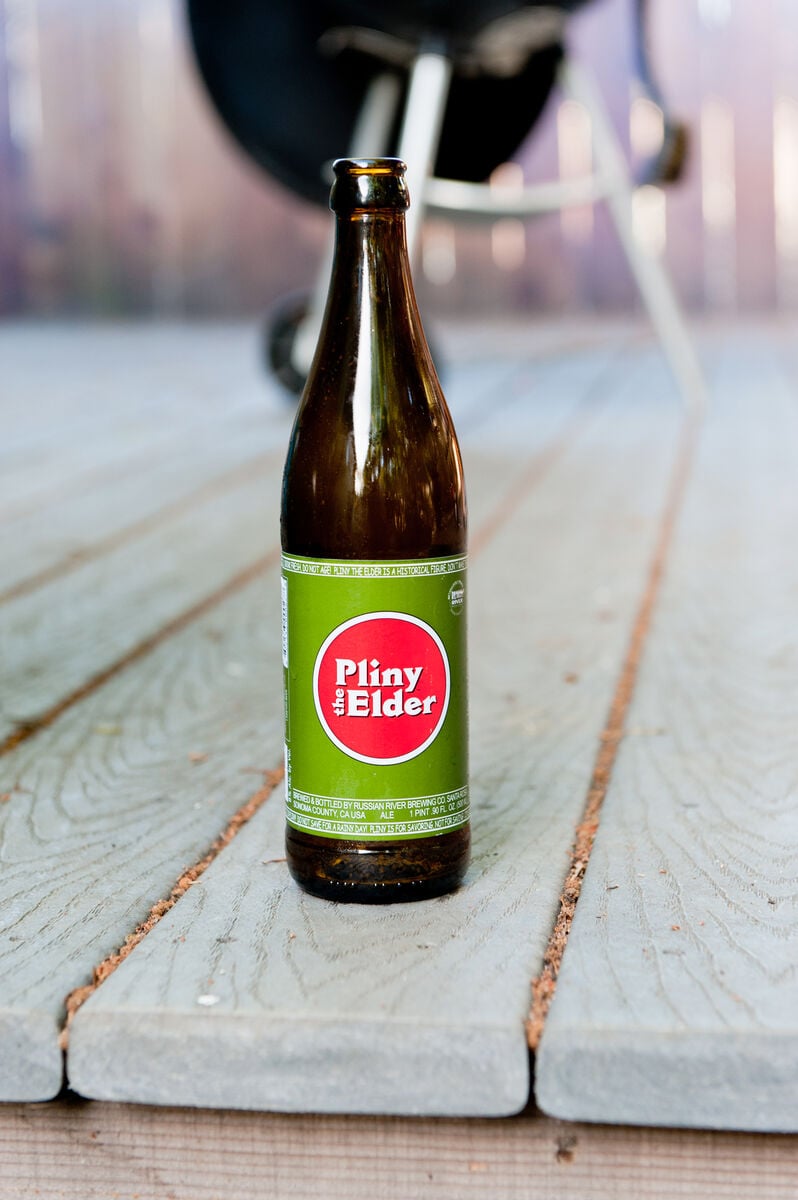
Pliny the Elder
Russian River Brewing Co.
Like many other breweries in the U.S., Russian River had its humble beginnings built on the ashes of a failing business and the dreams of something new. Originally opened in 1997 by Korbel Champagne, the brewery was purchased by its former brewmaster, Vinnie Cilurzo, and his wife in 2002 and moved to Santa Rosa a couple of years later. Making the move along with them was the quintessential west coast DIPA, Pliny the Elder – which is widely regarded as the first-ever Double IPA. Within a few short years this dry, piney, perfectly bitter beer had moved to all the top beer ranking lists around the world including holding the title of “Best Beer in America” for an astounding eight years. Today, it remains one of the top beer meccas in the U.S. for two clear reasons. First, Russian River has always been very selective about distribution (making its offerings available to only a handful of markets). Second, drinking Pliny on tap at the source is worth a drive from anywhere.
Photo Credit Flickr/star5112
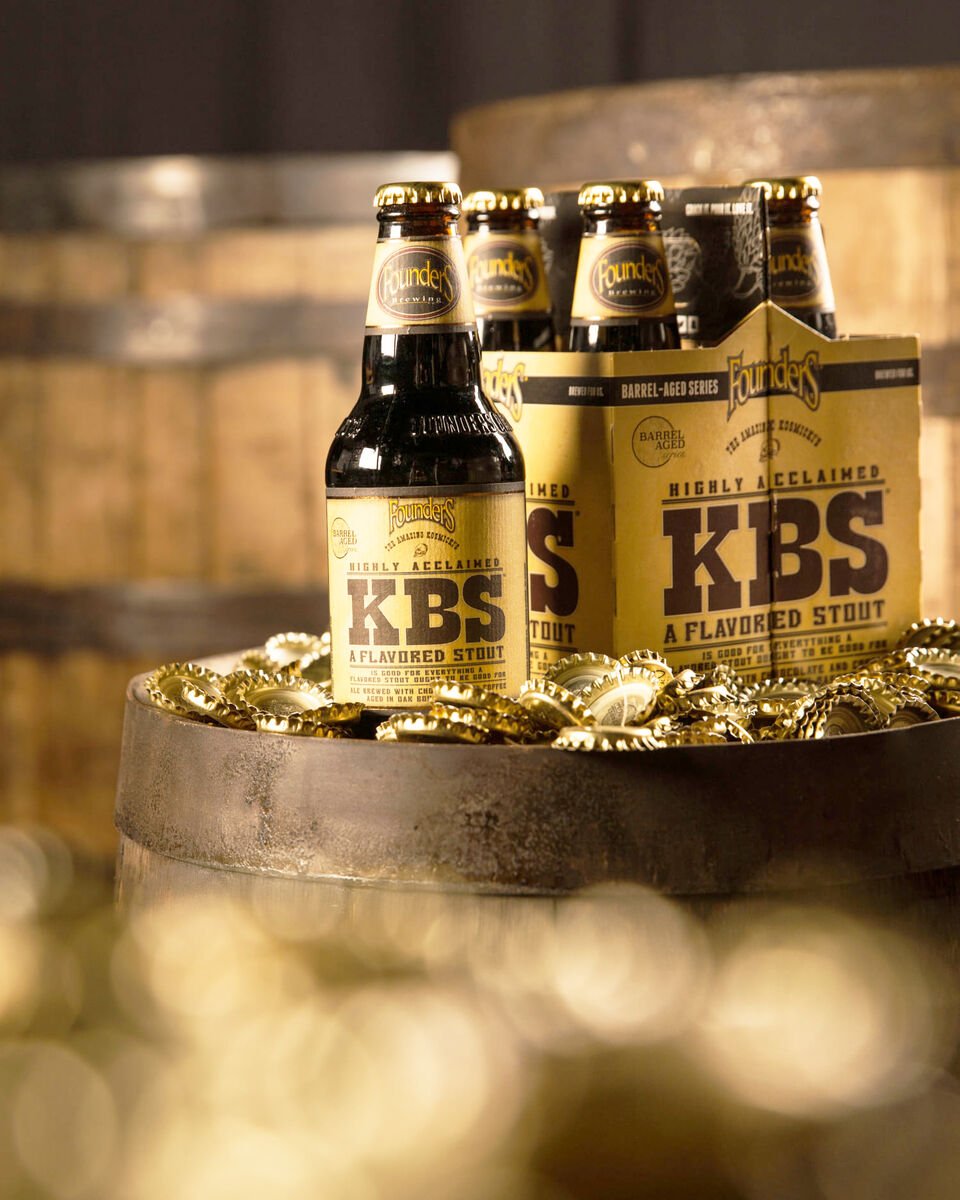
KBS
Founders Brewing Co.
In the early 2000s, Founders Brewing Company was still in its early days brewing beer for their small taproom in downtown Grand Rapids, MI, where they had already begun making waves with the likes of Dirty Bastard and Centennial IPA. In whichever way the conversation unfolded (some brewery lore can be a bit fuzzy), the idea to fill bourbon barrels with Breakfast Stout was floated, thus creating the iconic KBS, short for Kentucky Breakfast Stout. What separated Founders KBS from any other barrel-aged stout in the U.S. (then and now) was the unique series of mines beneath Grand Rapids, which were used to rest the barrels. These caves provided the consistent temperature and humidity needed to produce the sought-after oaky vanilla, cocoa and coffee flavors the beer has become famous for.
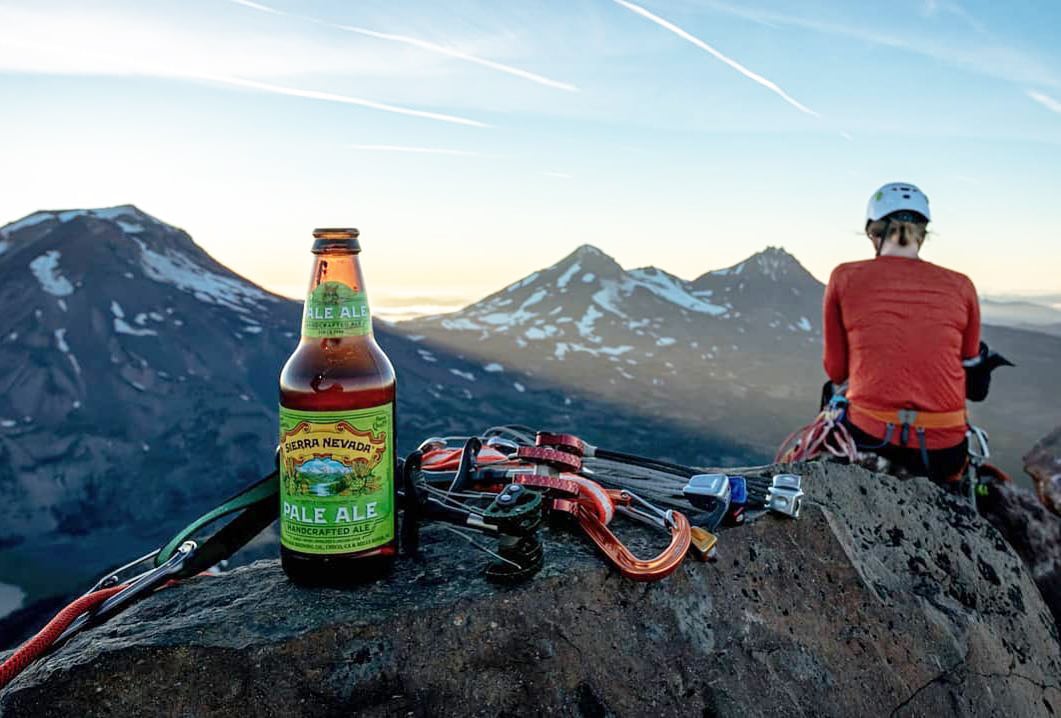
Sierra Nevada Pale Ale
Sierra Nevada Brewing Co.
One of the true OGs of the American craft brewing world, Sierra Nevada Pale Ale made its debut way back in 1981. A mere three years after the legalization of homebrewing in the United States, Sierra Nevada did something that would change the course of history. They took a fairly standard English Pale Ale recipe and hopped it with a uniquely American hop variety developed by Oregon State University a decade earlier but had remained largely overlooked to this point: Cascade. Moving forward, Sierra Nevada Pale Ale can be credited with inspiring countless reinterpretations to build on the Cascade varietal and spurring on generations to chase bigger hop profiles.
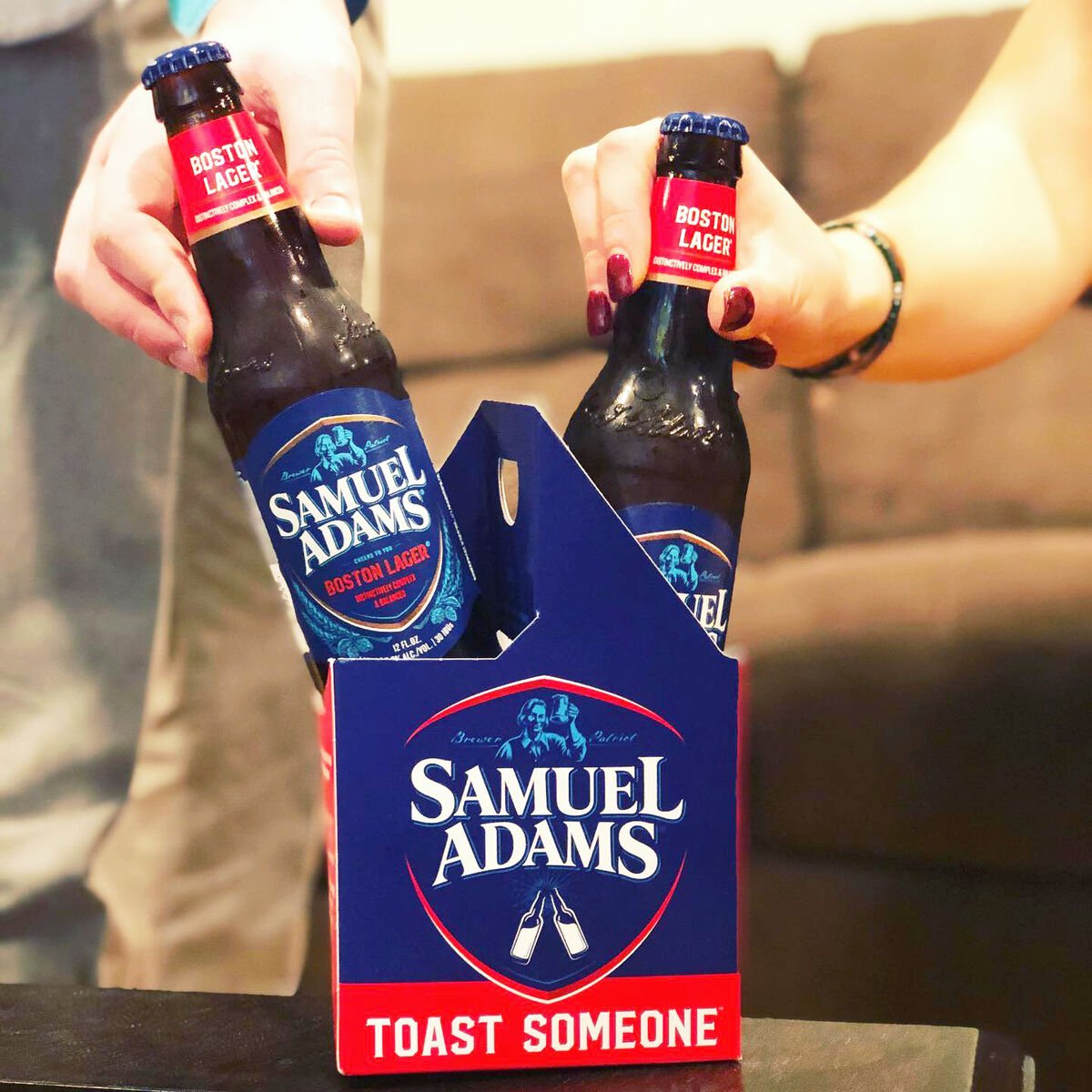
Samuel Adams Boston Lager
The Boston Beer Co.
If one was going to conduct a random poll of craft beer drinkers above the age of 30, and ask them what was their craft beer “a-ha” moment, hands down Sam Adams Boston Lager would be a leader. Launched in 1985 and based on founder Jim Koch’s family recipe, it took only a few short months to be named “The Best Beer in America” at the Great American Beer Festival. In the years to come, it became one of the few draft options not named Miller, Coors or Bud available in most bars and restaurants.
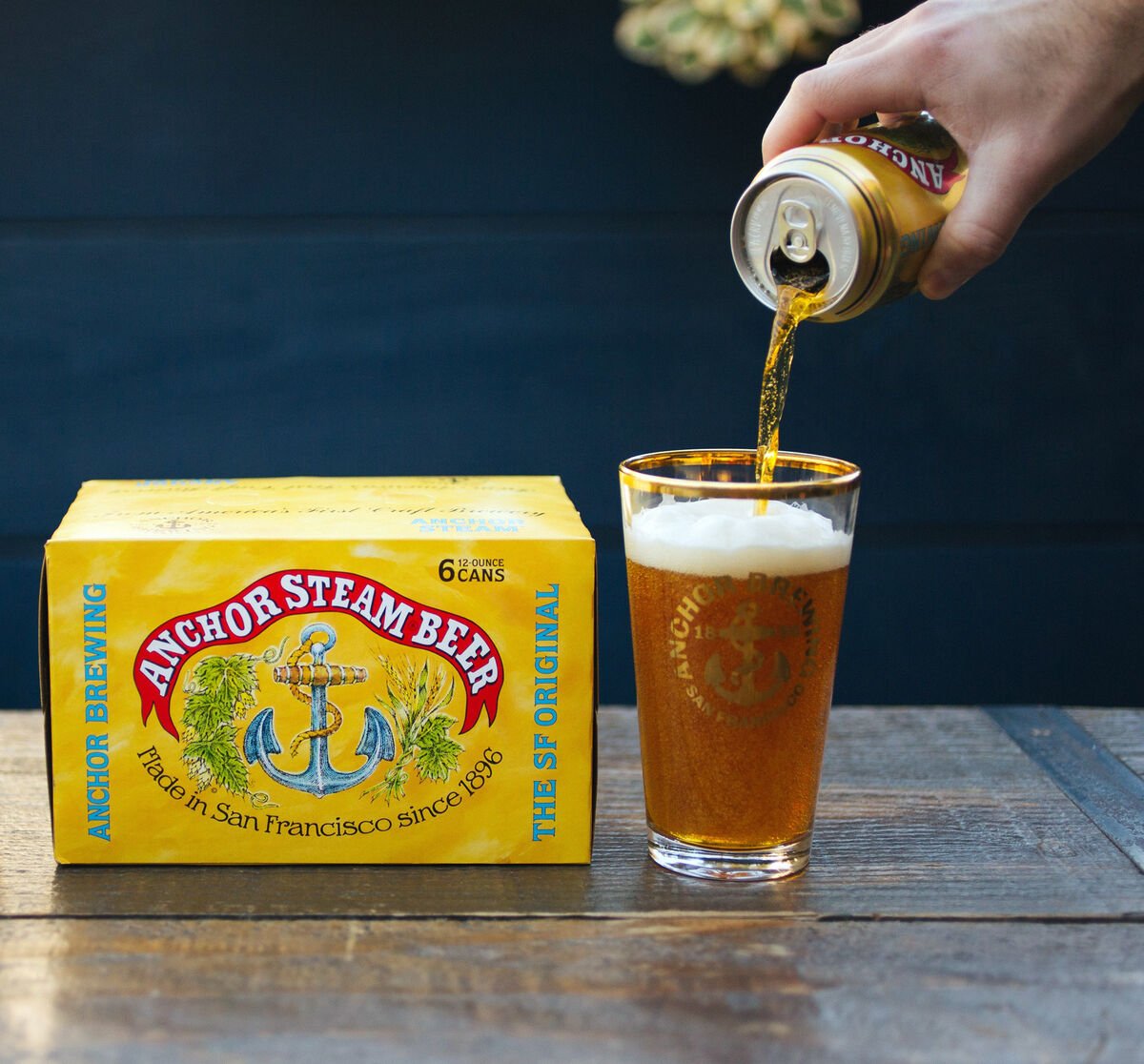
Anchor Steam
Anchor Brewing Co.
Fritz Maytag rightfully holds a place in American craft beer history. In 1965, he purchased the failing Anchor Brewing Company, the last remaining brewer of the uniquely American California Common beer called Anchor Steam. With investments in production and cleanliness, Fritz had begun a small revolution and turned the tides on the rapid decline of U.S. breweries. Anchor Steam slowly developed a loyal following in San Francisco, eventually gaining national attention becoming the first microbrewery with additions like Porter, IPA and Barleywine.
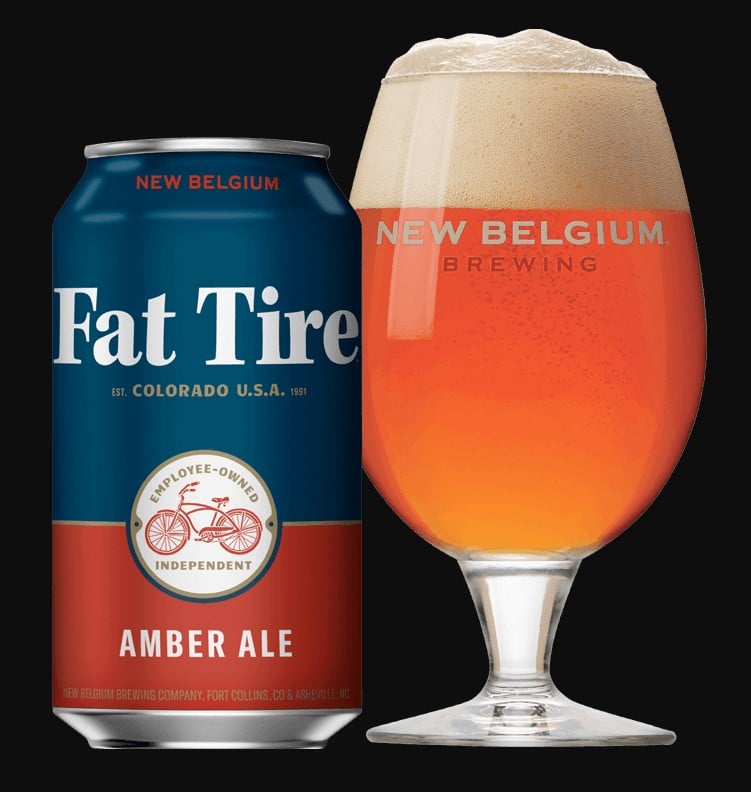
Fat Tire
New Belgium Brewing Co.
Before it became one of the biggest craft breweries in America, New Belgium Brewing Co. was an idea that was planted from a bike trip through Belgium by co-founder Jeff Lebesch in which he sampled the wares of a country known for its brews. Inspired by Belgian ales, Lebesch and his then-wife Kim Jordan founded New Belgium in 1991 with its Abbey and the brewery’s best-known beer: Fat Tire. This Amber Ale features a bevy of complexity and Belgian inspiration and helped to usher in the modern craft beer movement.

Dark Lord
Three Floyds Brewing Co.
Three Floyd’s Dark Lord Day should be a lesson in brewery release spectacle. Part heavy metal concert, part beer festival for beer nerds searching for whales, there is nothing quite like snagging a ticket to this special day in May. Like most things of this nature in 2020, the major events were canceled but are due to return in a scaled-down version in 2021. In past years, tickets would sell out in minutes giving the coveted holders the right to stand in line for a couple of hours and shell out nearly $200 for a few bottles. Even if one didn’t want to wait in line, there were more than enough chances to purchase pours of Dark Lord variants while listening to some face-melting metal bands.
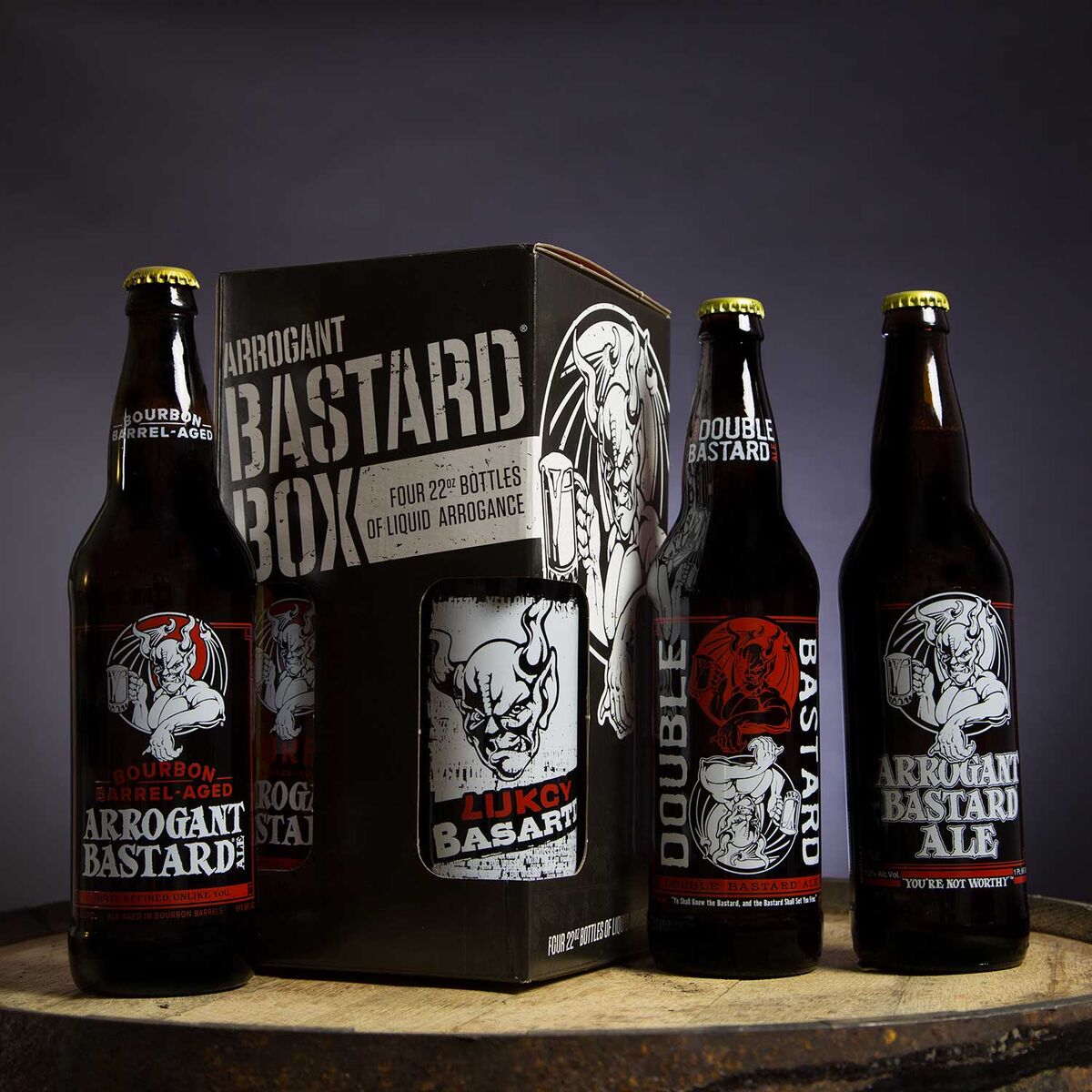
Arrogant Bastard Ale
Stone Brewing Co.
“This is an aggressive beer. You probably won’t like it.“
With those few words, Stone Brewing Co. helped establish the ethos of the craft brewing movement in the late 1990s. By marketing towards those with more refined palates and actively placing themselves in opposition to the big, macro brewers, Stone became the poster child for the pugnacious attitude of craft brewing towards its lager-fueled forebears with unlimited advertising budgets. Of course, the beer had to back it up – and it did. A 7.2 percent ABV American Strong Ale would’ve been truly revolutionary in 1997 when most beers were more on the lager end of the spectrum. Since its inception, very few beers have influenced craft beer like Stone’s Arrogant Bastard Ale has.
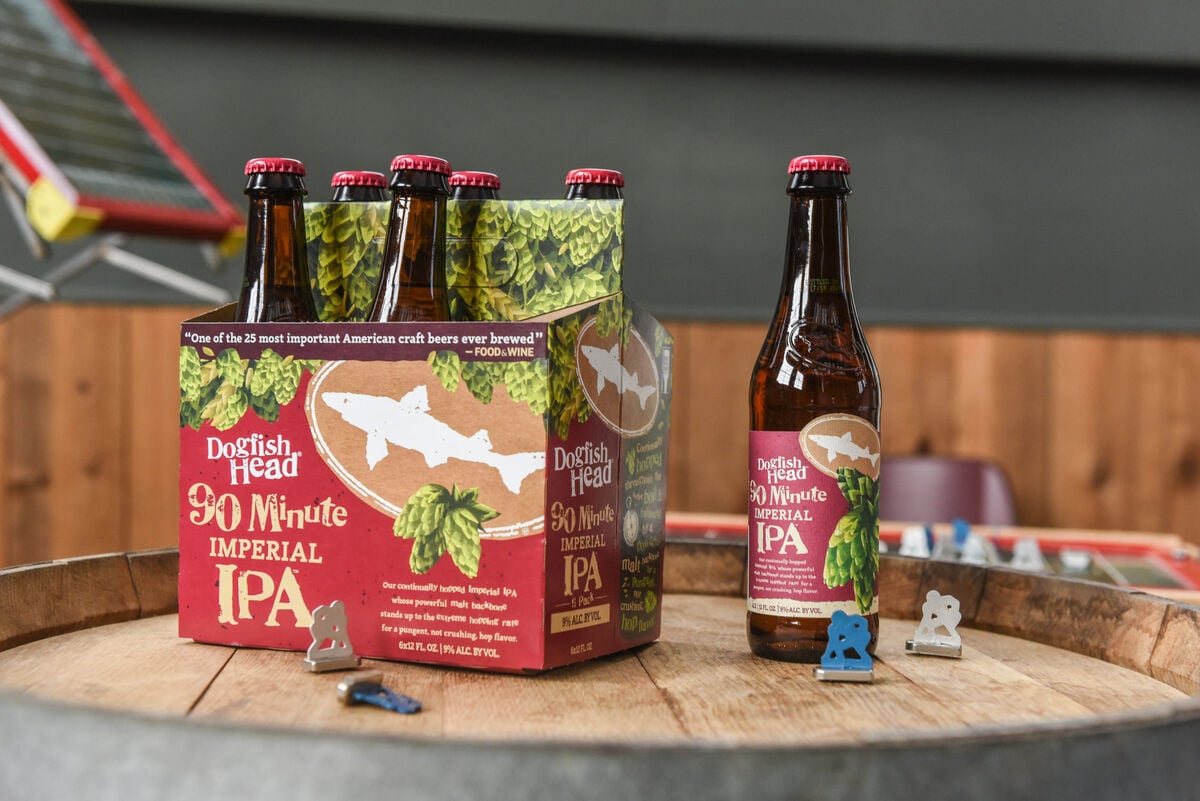
90 Minute IPA
Dogfish Head Craft Brewery
Dogfish Head Craft Brewery’s head honcho Sam Calagione wanted a way to continually add hops to his IPAs in the late 90s. Inspired by a cooking show and employing an electric football game (a curio from a bygone era), Calagione and the Dogfish Head brewers found that the game allowed hops to cascade in to the tank at just the right ratio – creating the process of continual hopping in one fell swoop!
When it debuted in 2001, very few brews had the hop quotient that 90 Minute IPA did, and it was widely lauded as one of the best Double IPAs in the world for many years. It still stands up as one of the key beers in craft beer’s development 20 years later.




Comments